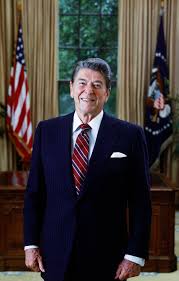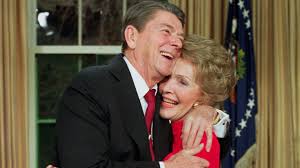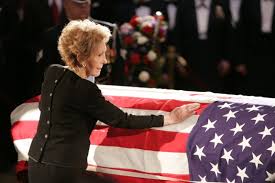Each year on February 6th, people across the United States and even beyond its borders come together to observe Ronald Reagan Day, celebrating the life and leadership of one of the most influential presidents in American history. Ronald Reagan’s legacy continues to shape political discourse, conservative ideology, and American identity decades after his presidency. For many, Reagan represents the epitome of leadership and personal integrity, navigating the complex landscape of the 1980s with remarkable skill and vision. This day provides an opportunity to reflect on his contributions to the nation and the world, from his work in the Cold War to his role in fostering a more optimistic, economically prosperous America.
A Brief Overview of Ronald Reagan’s Life
Born on February 6, 1911, in Tampico, Illinois, Ronald Wilson Reagan came from humble beginnings. His upbringing in a modest household, marked by struggles with poverty, instilled in him a sense of resilience and determination that would define much of his political philosophy. Reagan’s early years were characterized by a love for storytelling and communication. He worked as a lifeguard in his youth and later attended Eureka College, where he developed a passion for drama and public speaking.
After college, Reagan pursued a career in Hollywood, becoming a well-known actor in films and television. His experiences in the entertainment industry shaped his public persona, honing his ability to communicate with and inspire large audiences. He served as president of the Screen Actors Guild, where he became increasingly involved in political issues, particularly as it related to the growing influence of communism in Hollywood. Over time, Reagan’s political views shifted rightward, eventually leading him to join the Republican Party.
Reagan’s Political Rise and Presidential Journey
Reagan’s political career began in earnest when he was elected governor of California in 1966, a position he held for two terms. As governor, he championed conservative values, focusing on limited government, individual rights, and fiscal responsibility. He also made headlines for his stance on issues such as campus protests, the growing welfare state, and the need for a strong national defense.

In 1980, Reagan made his bid for the presidency, capturing the Republican nomination after a hard-fought primary battle. His message of restoring American greatness, limiting government intervention, and advocating for free-market principles resonated with voters disillusioned by the political climate of the 1970s, which had seen rising inflation, unemployment, and a loss of national confidence. Reagan defeated incumbent President Jimmy Carter in a landslide victory, winning 44 states and securing 489 electoral votes.
As the 40th president of the United States, Reagan inherited a nation in economic turmoil, beset by stagflation, a growing welfare state, and a declining sense of national pride. His administration would be defined by a series of bold initiatives aimed at revitalizing the American economy, strengthening the nation’s military, and reclaiming its moral standing on the world stage.
Key Accomplishments and Legacies
1. The Economic Revival: Reagan’s economic policies, often referred to as “Reaganomics,” centered around tax cuts, deregulation, and a reduction in government spending. His belief in the power of the free market led to tax cuts, particularly for individuals and businesses, with the intention of spurring investment, job creation, and economic growth. These policies were controversial at the time but ultimately contributed to a period of unprecedented economic expansion. The 1980s saw the longest peacetime economic boom in American history, with GDP growth, job creation, and stock market performance reaching impressive highs.
2. The End of the Cold War: One of Reagan’s most significant achievements was his role in ending the Cold War, a decades-long geopolitical struggle between the United States and the Soviet Union. Reagan’s approach to the USSR was tough yet pragmatic. He famously described the Soviet Union as an “evil empire” but also recognized the importance of diplomacy. His administration engaged in a series of arms reduction talks with Soviet leader Mikhail Gorbachev, culminating in the Intermediate-Range Nuclear Forces (INF) Treaty of 1987. Reagan’s insistence on peace through strength, coupled with his willingness to engage in dialogue, helped bring about the collapse of the Soviet Union by the end of the 1980s.

3. Strengthening the Military: Reagan believed that a strong military was essential to both national security and international stability. Under his administration, the United States rebuilt its military forces, increasing defense spending significantly. This was part of a broader strategy aimed at demonstrating American strength, both to deter Soviet aggression and to reinforce the country’s global leadership. The buildup of military might was instrumental in achieving Reagan’s goal of pushing back against the Soviet Union’s growing influence and preparing for the eventual end of the Cold War.
4. Advancing Conservative Ideals: Beyond his concrete policy achievements, Reagan’s presidency helped solidify conservative ideals as a dominant force in American politics. His advocacy for limited government, free markets, individual liberty, and a strong national defense laid the foundation for the conservative movement that would define American politics for decades to come. Reagan’s positive vision of America as a “shining city on a hill” continues to inspire politicians and citizens who believe in the nation’s exceptionalism and its potential to lead the world.
The Enduring Impact of Ronald Reagan
Ronald Reagan’s presidency may have ended in 1989, but his legacy continues to resonate. His policies have shaped modern American conservatism, influencing successive Republican administrations, including those of George H.W. Bush, George W. Bush, and Donald Trump. His emphasis on tax cuts, deregulation, and military strength remains a touchstone for the GOP.

Reagan also left an indelible mark on American popular culture. His easy charm, optimism, and wit made him a beloved figure in the public imagination, earning him the nickname “The Great Communicator.” His speeches, including his address after the Challenger disaster in 1986, have become iconic moments in American history, reflecting his ability to comfort and unite a nation in times of crisis.
Conclusion
Ronald Reagan Day serves as a reminder of the enduring influence of one of the most transformative figures in modern American history. Reagan’s life, leadership, and legacy inspire continued discussion about freedom, democracy, and the American spirit. As we reflect on his contributions, we are reminded of the power of optimism, strong leadership, and a commitment to principles in the pursuit of a better future for all. Reagan’s life story is one of perseverance, vision, and the belief that a nation, when united, can overcome any challenge. 
